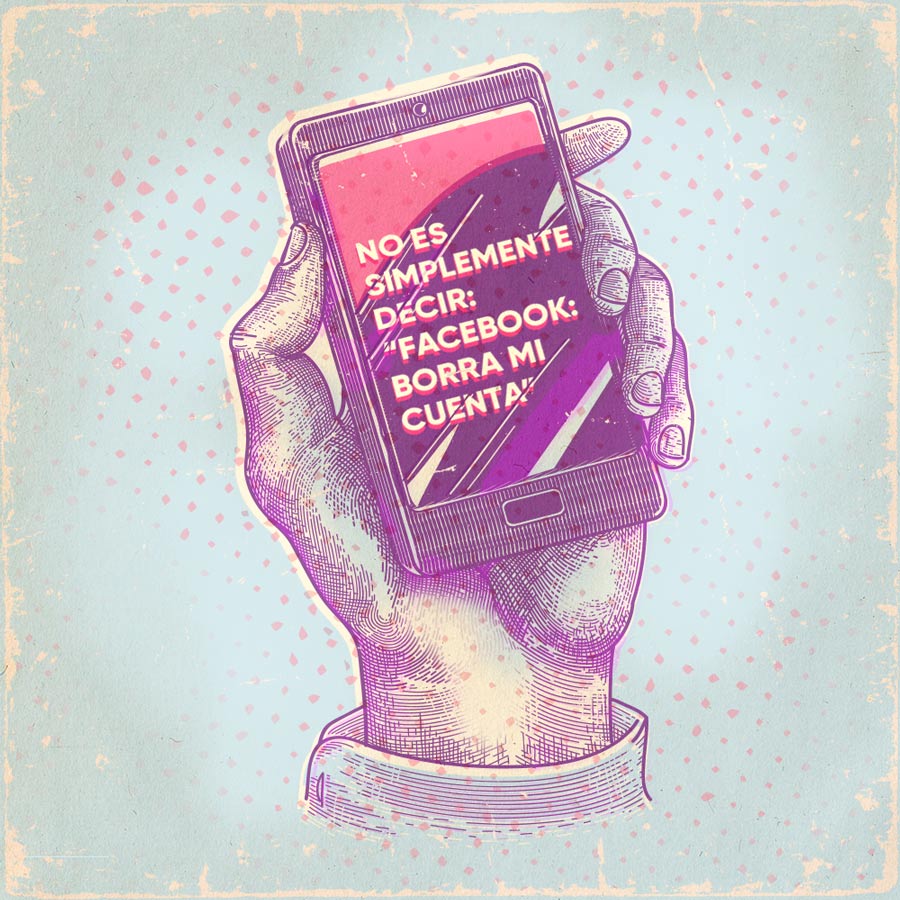Social media
 |
| Image taken from the article |
"Sentir que no hay que probarle nada a nadie, al menos no en Internet, tener tiempo para vivir la vida, verse con las personas y hablar cara a cara. Hay muchos beneficios en no estar todo el tiempo revisando lo que sucede en Facebook, Instagram o Twitter, pero al mismo tiempo muchos han encontrado una forma de expresarse, ser oídos y hasta generar negocios por estar en ellas".
Have you ever wanted to quit social media? Is it the first time it pops into your mind? How hard it will be to give it a try?
In today's article, Diana Luque explores the reasons why it seems so hard, for a huge part of the society, to quit social media:

Hi Nata, this blog looks amazing. There is nothing more important to teach children noadays that combine both literature and TIC'S. I am looking forward to seeing who your idea goes. I want to see what children are going to create. I love the idea it is very innovative and refreshing.
ReplyDeleteGreat port Nata. As Óscar said, I consider that this topics are quite important keeping in mind the young learners nowadays, besides this content is also applicable for us as teachers or just social-media users. I personally haven't thought about quitting social media but I do consider what specific networks are useful and necessary.
ReplyDeleteIt is important to use corectly social media. It is one of our biggest challenge.
ReplyDeleteOnce that talking about technology nowadays, there will be a gap that has not been covered yet in terms of education and wheter it should be used or not in the classroom. As teachers, we must be aware of the advantages that social networks can provide us to enhance children´s learning, but also the possible risks that working with it may bring to the classroom.
ReplyDeleteIt si all about how to approach ICTs and Social Media in the classroom. There should be a call of awareness on how risky and useful using this could be at a personal and academic level. Media Literacy is something that can be studied to do so or Critical Literacies. I do recommend you to have a look at those terms and concepts.
ReplyDeletePlease answer the following questions:
How can ICTs and Social Media be used properly in the classroom?
How would you make your students aware of the risks implied on Social Media?
What would your students reactions be if being told to delete facebook?
How would you use Facebook, Twitter, Instagram, etc; in order to teach/learn languages?
Natalia, please talk about your own experience using Social Media and ICTs in the classroom and the outcomes, positive or negative. What do you propose or suggest on the subject?
Thanks
This comment has been removed by the author.
DeleteThanks a lot for your comments and suggestions; I will definitely take a look of those concepts, they seem very interesting to study and to analyze critically this subject.
DeleteIn regards to your questions, here I give you my possible answers:
I think that it will all depend on the objectives that will guide the process of teaching and learning. If we have clear objectives on the use of those tools, we will be able to adapt them and to use them as tools to teach about culture, language, communication and more. It is to say that it is not just about using them, but making what Chevallard call “didactic transposition”, it means, adapting the material we have, to guide students through a process of analysis of content and of their own reality.
I think we can read and analyze testimonies of people around the world about how they are using social media and how it helps or affects social interaction and learning. The idea will be to show different regards of the same situations: the opinion of the ones that do not use social media, the ones that use them all the time, the ones that created them, the ones that criticize them. In that way, they will have the different pieces of the same puzzle.
In my opinion, it depends on the age of the students and the access they have to those tools, as it is internet, a computer or social media. As the article reads, quitting social media is not an easy task, if we bear in mind that nowadays it permeates every aspect of our lives: our jobs, our academic life and of course our personal life. Likewise, I think we should not sell Facebook or social media as a really bad thing, because it will lead them to want to be part more and more of social media; it is about sharing and analyzing the benefits and disadvantages of using them.
I think that what we are currently doing in our ICTs class is a really good way to approach ourselves to social media and ICTs tool but with a more educative objective. Thus, flipped classroom is one of the paths that could lead us to achieve that goal: being able to learn, to share and to build knowledge based on our interaction in social media. We can propose discussions, study videos and articles and share with people from different places and with other opinions.
Nevertheless, all those activities and exercises have to be planed according to student’s needs. It is not about forcing them to make part of social media or to quit it, because that is a personal decision. Also, it is also about analyzing how important it is for them: if they are kids with no access to internet or social media, maybe it will be better to develop with them other kinds of projects more related with their own needs.